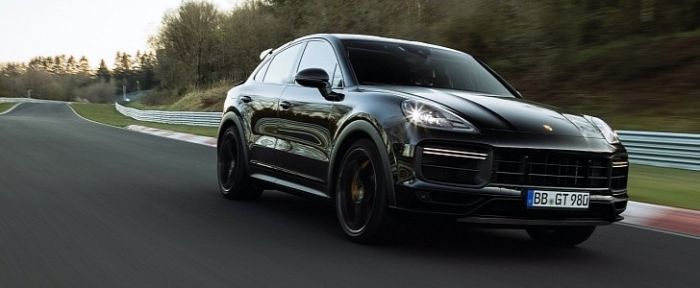With every passing year, technological advancements push the boundaries of innovation in the automotive industry. For decades, the V8 engine has stood as a symbol of power, performance, and engineering excellence. Yet, a paradigm shift may be on the horizon. Porsche, renowned for their engineering prowess, has reportedly made significant strides in hydrogen-powered technology, positioning it as a strong contender to rival the conventional V8 engine.
This potential breakthrough marks a turning point in automotive engineering, introducing a sustainable solution while maintaining the performance car enthusiasts crave. This blog explores Porsche's hydrogen initiative, its implications for the luxury sports car market, and how it might redefine the future of high-performance vehicles.
The Challenge of Balancing Sustainability and Power
High-performance engines, like the iconic V8, have long been the heartbeat of sports cars. However, the global push for sustainable practices has forced the automotive industry to explore cleaner energy sources. While electric vehicles (EVs) have dominated the conversation, there is growing interest in hydrogen as an alternative.
The hydrogen economy, as it’s often referred to, has immense potential. Unlike fossil fuels, hydrogen produces only water as a byproduct when used in fuel cells or combustion engines. However, the technology has faced several hurdles, such as high production costs, limited fueling infrastructure, and concerns over energy efficiency.

Porsche's breakthrough appears to tackle many of these challenges, positioning hydrogen not just as a viable solution, but possibly as the future of sustainable automotive performance.
Porsche’s Hydrogen Technology: What Sets It Apart?
A New Era of Internal Combustion
While most hydrogen-powered vehicles rely on fuel cell technology, Porsche has focused on a hydrogen combustion engine instead. This distinction is critical. Hydrogen-powered fuel cells typically convert hydrogen into electricity to power an electric motor. Porsche's approach, however, involves combusting hydrogen in an internal combustion engine designed specifically for this purpose.
This method not only retains the visceral driving experience enthusiasts expect from high-performance vehicles but also reduces carbon emissions to an almost negligible level. For Porsche, keeping the soul of a sports car alive, even as they innovate with hydrogen, underscores their engineering philosophy.
Optimized Engine Efficiency
Another defining aspect of Porsche's hydrogen project is the level of efficiency achieved in their combustion engines. Historically, hydrogen internal combustion engines have struggled to match the efficiency of traditional gasoline-powered engines. Porsche claims to have overcome this limitation with proprietary technologies that maximize power output while minimizing energy loss during combustion. Details of Porsche’s hydrogen combustion engine suggest it could rival the performance metrics of a V8, or even surpass it in certain areas.
Sound and Driving Experience
For sports car purists, sound and feedback are non-negotiable aspects of the driving experience. Electric vehicles, often criticized for their silent operations, can't replicate the distinct roar or vibration of a combustion engine. Porsche’s hydrogen combustion technology retains the auditory and sensory thrill of driving, further solidifying it as an exciting alternative for those who don’t want to give up an emotionally connected driving experience.
Relevance of Hydrogen in a V8 Dominated Landscape
Why Hydrogen Could Rival the V8 Engine
The V8 engine has long been regarded as the epitome of balance between power and refinement. Its deep resonance, consistent reliability, and exceptional performance make it a staple of high-performance automotive culture. However, hydrogen’s appeal lies in its ability to deliver high power output with zero carbon emissions—two areas where the V8 engine struggles to compete in an era of environmental awareness.
By overcoming the technical barriers traditionally associated with hydrogen combustion engines, Porsche could unlock performance capabilities that rival, or even eclipse, the revered V8 engine. This represents an opportunity to blend sustainability and tradition without compromising on either.
A Step Forward for Sustainable High-Performance Vehicles
It is no secret that governments and environmental organizations worldwide are tightening emission regulations. While internal combustion engines powered by traditional fuels face an uncertain future, hydrogen combustion engines represent a loophole in the race for clean automotive technology. By leveraging hydrogen, manufacturers like Porsche can continue to offer internal combustion engines while aligning with future sustainability goals.
Additionally, hydrogen combustion engines require far fewer rare-earth minerals compared to EV battery production. This makes them a compelling option for reducing the environmental impact of vehicle manufacturing processes while addressing ethical concerns related to mining.
The Market Impact of Porsche’s Hydrogen Breakthrough
A New Niche for Performance Enthusiasts
Porsche’s focus on hydrogen is particularly enticing for a niche audience of performance enthusiasts who are hesitant about transitioning to electric vehicles. By creating a hydrogen-powered car that mirrors—or exceeds—the soul-stirring performance of a V8-powered vehicle, Porsche could carve out a new segment within the high-performance market.
This approach could appeal to traditionalists yearning for the visceral feel of internal combustion engines, but who remain conscious of the environmental impact.
Paving the Way for a Broader Hydrogen Economy
Beyond sports cars, Porsche’s hydrogen breakthrough could contribute to a broader shift in the automotive industry. It has the potential to inspire other automakers to invest in hydrogen technology, driving a collaborative effort to build fueling infrastructure and scale hydrogen production. The end result could accelerate the adoption of hydrogen as a mainstream energy source for automobiles, reducing global reliance on fossil fuels.
Challenges Ahead for Hydrogen in Automobiles
While Porsche’s advancements are undoubtedly exciting, several challenges remain.
- Fueling Infrastructure: Hydrogen fueling stations are still sparse, making it challenging for potential customers to adopt hydrogen-powered vehicles confidently.
- Production Costs: Scaling hydrogen production to meet industry demands while keeping costs competitive remains a significant hurdle.
- Public Perception: EVs currently dominate the conversation around green automotive technology. Educating consumers about the benefits of hydrogen combustion will be crucial for adoption.
Porsche’s ability to address these challenges will be pivotal in determining whether their hydrogen breakthrough becomes an industry-wide phenomenon or remains a niche innovation.
What Does This Mean for the Future of Automobiles?
Porsche’s push into hydrogen combustion technology represents a forward-thinking approach that challenges traditional automotive norms. While electric vehicles continue to dominate the push for a greener future, Porsche reminds us that innovation doesn’t always conform to a singular narrative.
If executed successfully, this hydrogen breakthrough could redefine the possibilities for sustainable high-performance vehicles. For the V8 engine, it may spell the beginning of serious competition, forcing manufacturers to rethink how tradition can coexist with sustainability.
Closing Thoughts
The automotive industry is at a crossroads. Porsche’s foray into hydrogen combustion has the potential to bridge the gap between performance and sustainability, offering enthusiasts an exciting alternative to the traditional V8 engine.
While challenges remain, the potential benefits pave the way for engineers, manufacturers, and consumers to explore a new era in automotive technology. If Porsche’s hydrogen technology achieves its promise, it might not just be an alternative—it could become the new standard.
For car enthusiasts keen to stay ahead of the curve, this breakthrough is worth watching. It’s not just about keeping traditions alive—it’s about evolving them into something even better.
Post Comment
Be the first to post comment!
Related Articles

The Importance of Thorough UKG Testing
Apr 1, 2025 . Marketing
